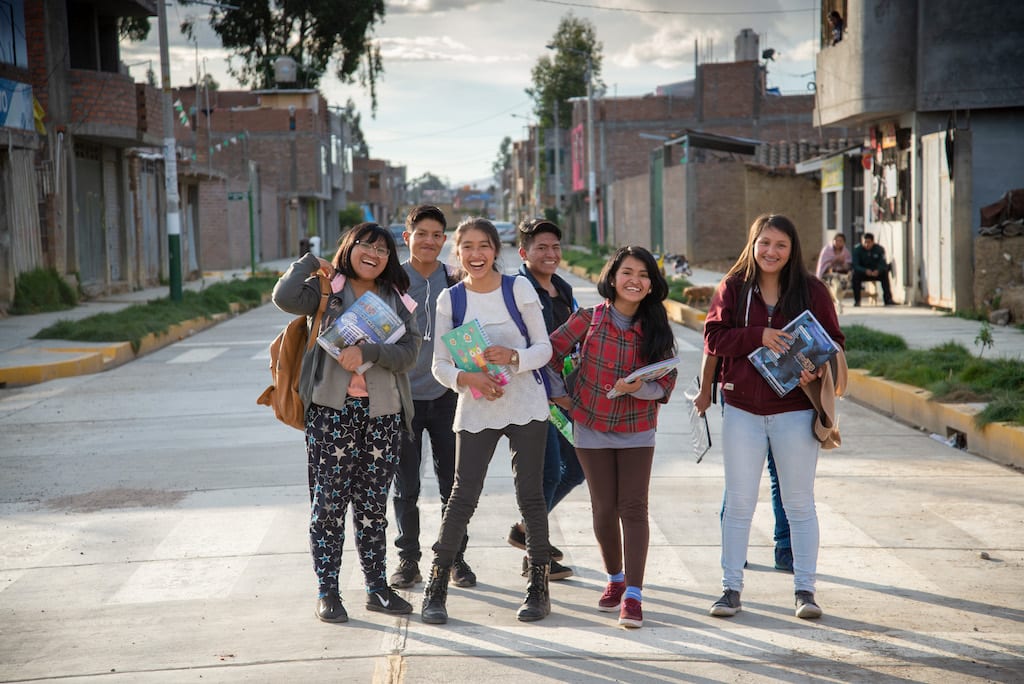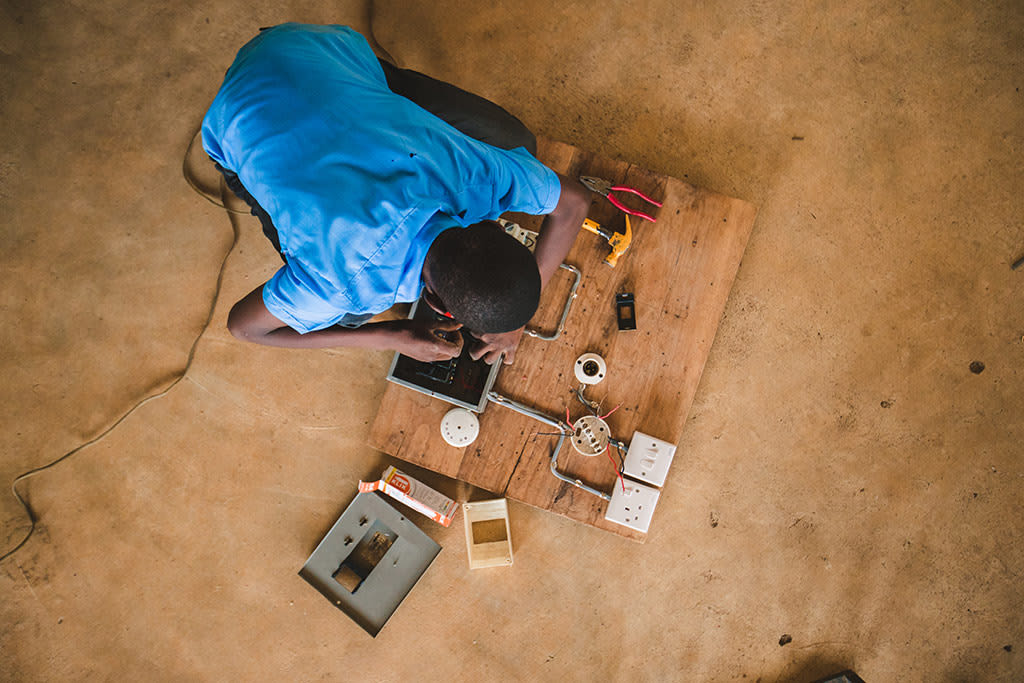Sponsors often wonder when youth graduate from our sponsorship program.
In North America, we typically view an 18-year-old as an adult and apply that thinking to children in other countries. It’s important to understand that children living in poverty around the world may start school later or have limited resources compared to Canadian children—which is why we focus on developmental goals more than age.
Compassion believes in developing all aspects of a child’s life as they mature: spiritual, physical, emotional and cognitive. We want to see them live out their full potential in Christ, and we offer opportunities to grow in these areas through child sponsorship.
That said, our global maximum age for programming is 22 years of age. Depending on the context of the country and the specific church partner, the maximum age may be lower. Youth typically complete Compassion’s sponsorship program between the ages of 18 and 22.
In rare cases, Compassion’s National Office may grant a special exception to allow a young person to stay in the program beyond the age of 22, usually due to extraordinary circumstances related to the completion of their education.

A group of students in Peru.
You may ask, “How did you choose that age?”
We focus our efforts on children and youth—that’s always been central to our mission. We have also witnessed the tremendous benefits of offering support between the ages of 18 and 22. We have seen young people better prepared and poised for lifelong development to mature into responsible, fulfilled Christian adults.
Supporters often contact us with questions surrounding this topic, and we thought it would be helpful to answer them in one place. I interviewed Emily Pippel, a team lead in our contact centre, and posed questions from a sponsor’s point of view.
Here’s a snippet of our conversation:
Why should I support a young adult after they’ve turned 18?
EP: While an 18-year-old can be considered an adult, the development of children living in poverty is not always comparable to children from wealthier contexts. Our hope is that through sponsorship, we can prepare students for success. That includes: being able to care for their own physical well-being, being connected to their local church for Christian guidance, being active members of their family and community, and being able to support themselves.
It’s important that youth can sustain the learning they’ve received through the Compassion centre and apply it in their lives after leaving the program.
In many of the communities where we work, some children have to delay starting primary school until their parents can afford to send them. Other children may have had breaks in their schooling when they weren’t able to pay for tuition. That means some graduate from secondary school after the age of 18. At the same time, staying in Compassion’s program after age 18 can allow for some students to attend vocational training, apprenticeships or post-secondary school.

Opportunities for education and vocational training are part of the Compassion program. Because of that, Lucerito in Guatemala fell in love with carpentry.
Why did my Compassion child graduate at 20 if the maximum age is 22?
EP: It could be a variety of reasons. The maximum age can vary depending on the child’s country or their specific Compassion centre. Some National Offices have determined a lower maximum age based on their cultural contexts. Sometimes it’s because of the programming that’s available at that particular church partner.
That can depend on the number of available staff and volunteers, the number of youth in that age group, the local program curriculum, or the vocational training and educational opportunities available. It’s also possible that your child has graduated because they’ve met the goals outlined for them and have shown that they’re ready to move on. There are a lot of possibilities, but we can find more information on a specific child’s situation if the sponsor asks.
If anyone wants to see their sponsored child’s projected graduation date, it’s available in their My Compassion account.
Why is my sponsored child not in school, yet they’re still in the Compassion program?
EP: Our goal is to see every child obtain a primary education and, where possible, secondary school education. Sometimes there are barriers like school fees or shortages in the number of schools and teachers. Because of situations such as these, we don’t require youth to be enrolled in secondary education to be part of our program.
At the same time, we always want youth in our program to have access to vocational training. In many communities, children don’t have access to job opportunities without a trade or hands-on skill, so by providing vocational opportunities, these children will have the means to support themselves after they complete the Compassion program. They can often use those skills to help fund further education down the road.
What happens after my Compassion child graduates? Can I still keep in touch?
EP: Yes! You can choose to release your contact information (mailing or email address). Provided that the graduate still lives in the same community and recently graduated (ideally within two months), we make every effort to pass on your information. It would then be up to the youth to take the next steps and decide if they want to contact you.
While there are possible benefits to maintaining that relationship, we also advise you of the inherent risks. It’s important to note that we can no longer guarantee privacy once your information has been released. Compassion would no longer be the intermediary between the youth and the sponsor, so all translation and mailing would be your responsibility. If your child has graduated within the last two months, you can email us or call our contact centre (1-800-563-5437) to see if it’s possible.
Youth development
As part of our Youth Development Strategy, each child, beginning at age 12, works with a Compassion mentor to identify and explore their skills and interests. They work through a guide called “My Plan for Tomorrow,” which helps youth set goals and make plans. It engages them as active participants in their own development as they work towards discovering their future.
Youth are required to set developmental goals according to what they hope to accomplish and how they’ve been uniquely gifted. Each child’s goals vary—just as their interests and God-given gifts do—and our desire is to guide them along the way.
Through the support of sponsorship and within the nurturing environment of the local church, youth work towards their individualized goals. This could include postsecondary education or vocational, leadership, entrepreneurial and other training opportunities.

Teenagers at Compassion centres often get to try trades such as electrical work, shown here at a centre in Tanzania.
Eventually, the time will come when a Compassion youth completes the program. For both the child and sponsor, this occasion is bittersweet. After years of writing, praying and loving each other, the sponsorship comes to an end. It can be a sad time, but it’s also a joyous occasion; a young adult has reached an important milestone on their journey to being released from poverty.
That’s definitely worth celebrating!
Graduating from our program is not the final step in one’s development. Our hope is that through Compassion, each young adult has been equipped and empowered with the knowledge, skills and behaviours to pursue the plans God has for their life.
This isn’t the end— it’s only the beginning!





